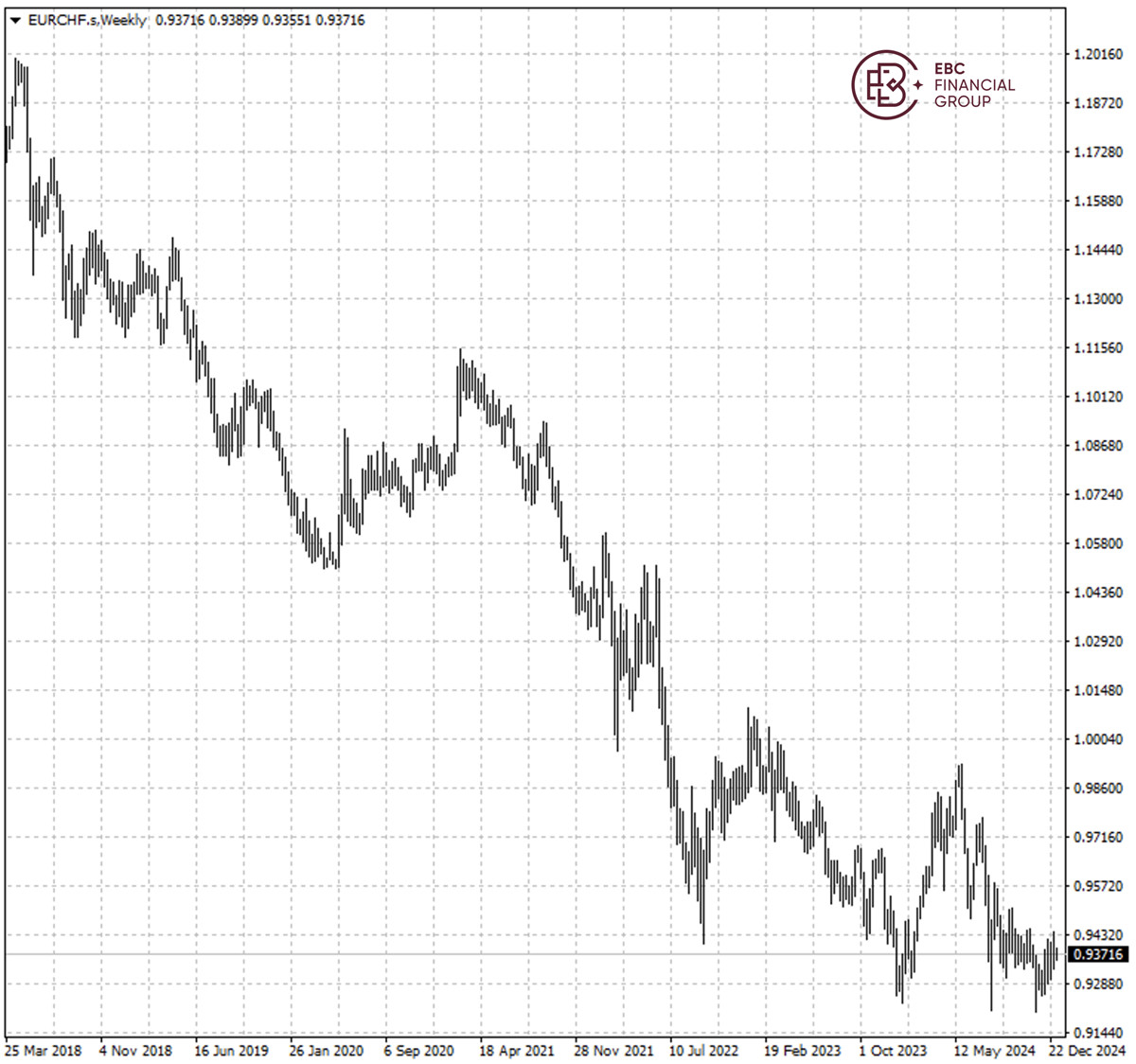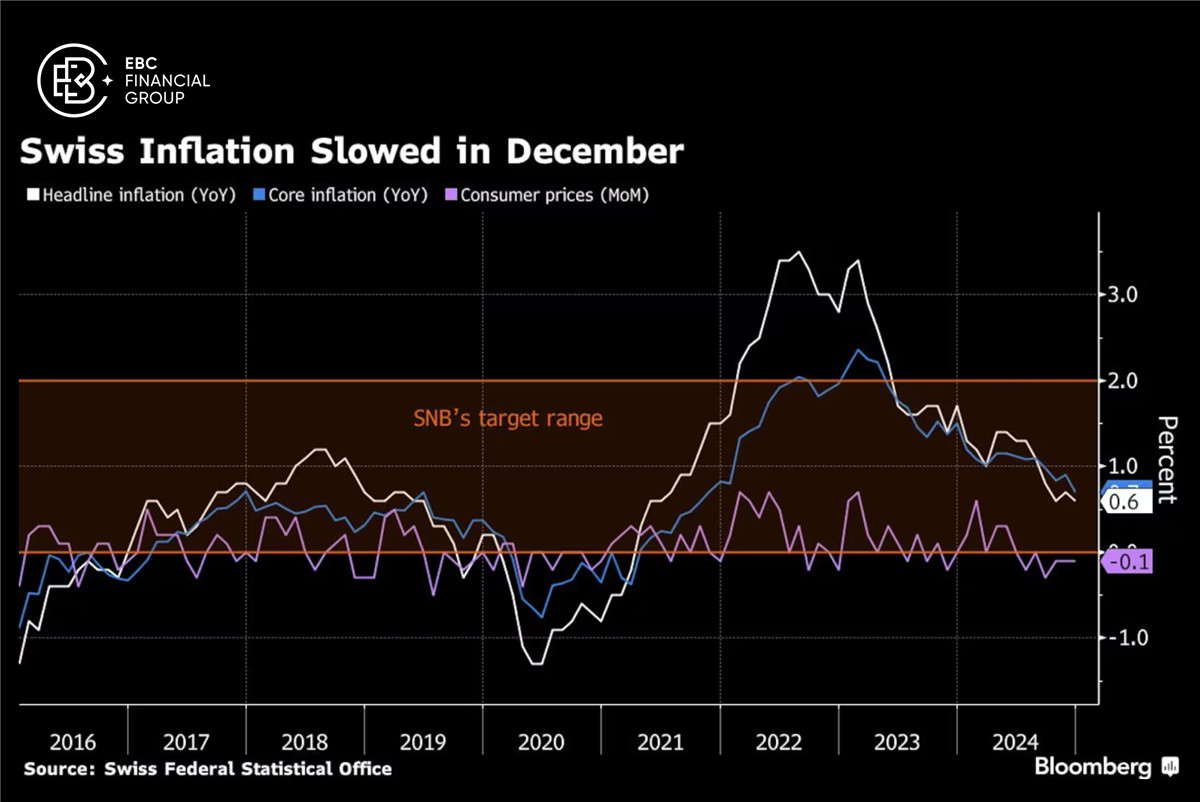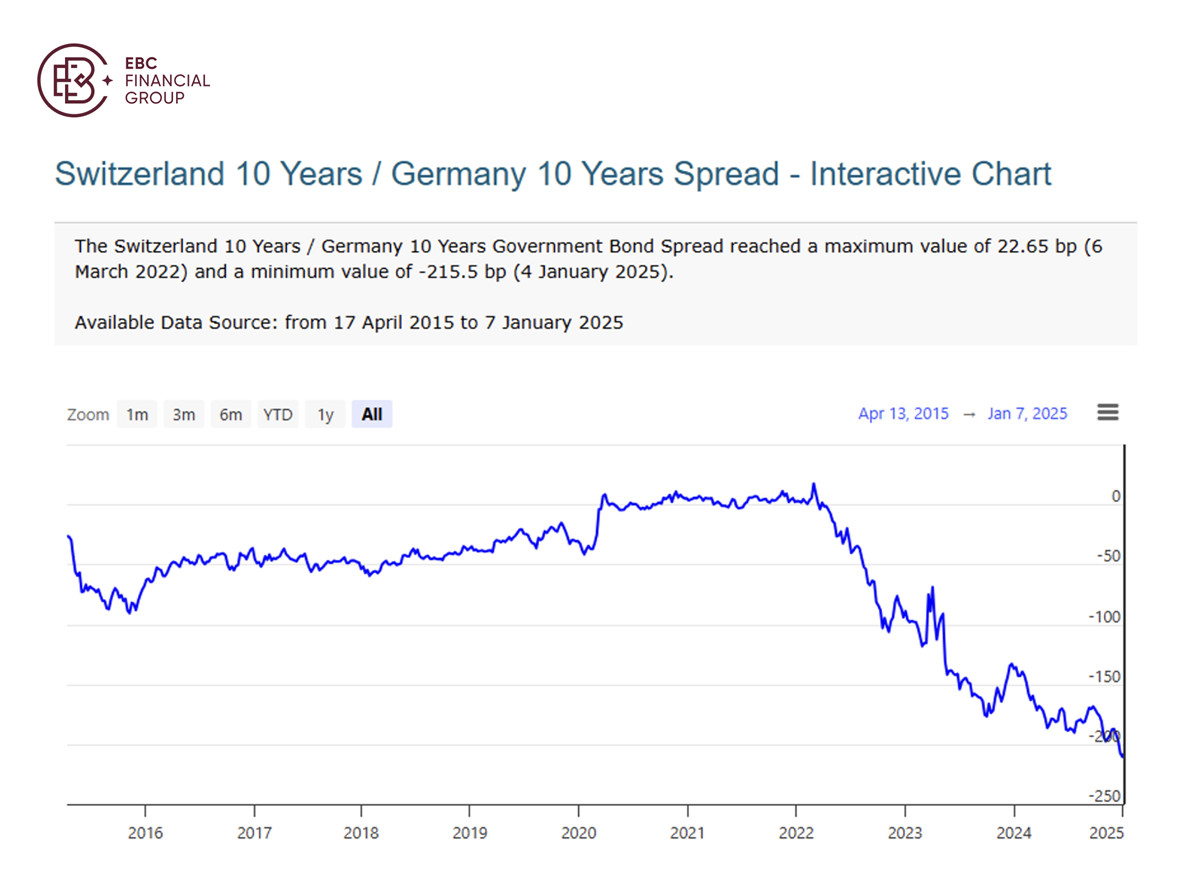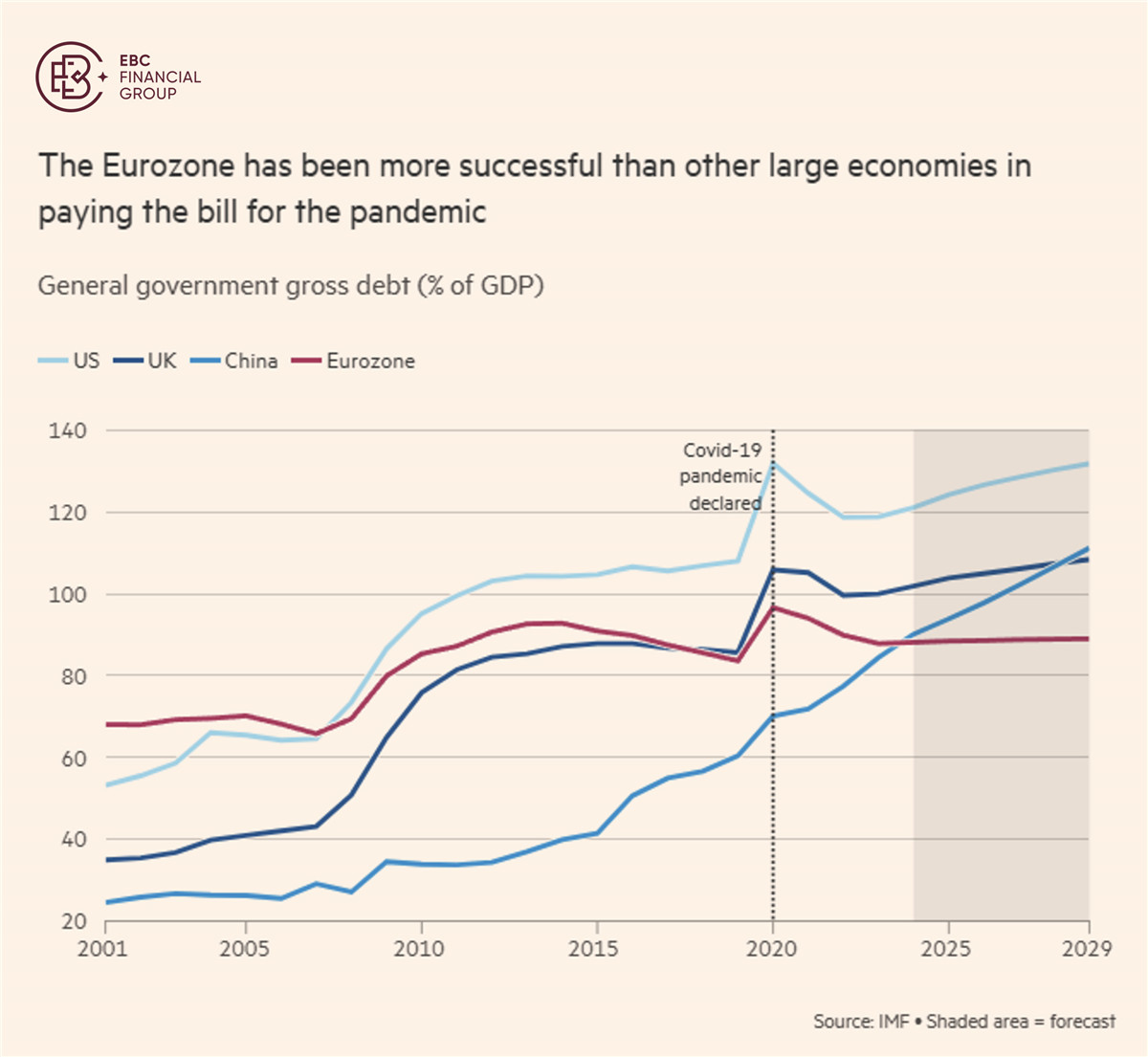The euro registered its first yearly gain against the Swiss franc after Trump
waged a trade war in 2018. Before the tariff man served his second term, Europe
showed more solidarity than before.

Last month Switzerland and the EU unveiled a deal to carry out the biggest
overhaul of their trade ties in years, overcoming Swiss concerns about
immigration and setting the scene for an approval process.
Opposition to the EU has come on the right from critics warning about sharp
population growth, and on the left from trade unions worried about wages coming
under pressure.
The deal is a step forward from the last bid, which failed in 2021 with
Bern's abrupt pullout. It also delivers a boost to the bloc that tries to hold
Europe together following the Brexit.
The EU accounts for over half of Swiss exports. The bilateral trade is now
carried out under a 1972 free trade deal. Some accords have been obsolescent
with some expiring as the EU updates its own regulations.
Swiss economy has outperformed its neighbours amid geopolitical tensions. UBS
sees it growing in 2025 by 1.3% compared to 0.6% for Germany, 0.9% for France
and 0.9% for the eurozone.
Still foreign demand is questionable as the deal is unlikely to provide a
quick fix for problems in neighbouring Germany at the risk of entering a
recession. Potential tariffs from the US are also perturbing.
Deflation fears
Trump's administration may well again help increase the appeal of the Swiss
franc but the SNB will definitely frown at a stronger currency that could
elevate deflation risks this year.
The central bank cut interest rates four times in the past year as price
growth slowed to a halt. Its inflation rate forecast for 2025 was revised down
to 0.6% in October, compared with a previous outlook of 1.1%.

Deflation is Switzerland's chronic headache. Consumer prices peaked at 3.5%
during global inflation boom - a level much lower than 10.6% in the Eurozone –
and the upsurge proves fleeting.
Former chairman Jordan signalled in Q3 that currency intervention could be
used alongside interest rates "if necessary" to get a handle on prices, but did
not commit to a timeline.

Yield spread between 10-year Bund and its Swiss peer has widened
significantly from around 0 to over 200 bps since early 2022. Even so, the Swiss
franc surged nearly 1000 bps against the euro during the period.
But continuing disinflation will likely benefit the eurozone where inflation
rate reaccelerated to 2.4% in December. The ECB could have more room for easing
to spur a recovery in the circumstance.
Energy costs are a likely driver of that trend. Israel and Hezbollah reached
a ceasefire in late November – a step closer to the end of the war in Gaza – and
Trump is going to encourage oil and gas drilling.
Fiscal restraint
Economists see fiscal stimulus as necessary to help the eurozone out of
doldrums after Brussels has reinstated rules requiring member states to rein in
budget deficits to a maximum of 3% of GDP.
While the member states have already cut back on spending more than the US
and China, the bloc's debt-to-GDP ratio is up from 83.6% in 2019 to 88.7% at the
beginning of 2024.

That came as Germany is facing existential threats to its business model. The
end of cheap Russian gas supply and an upended relationship with China makes the
country a big laggard in Europe.
German Chancellor Olaf Scholz has lost a vote of confidence in parliament,
paving the way for early elections on 23 February after a three-party governing
coalition collapsed in November.
It will be more difficult for mainstream parties to form a stable governing
coalition if the far-right AfD gains traction in parliament, which only
complicates Scholz's effort to ease debt rules.
The 2025 budget has also become a flash point in French politics, with
opposition parties expressing sharp criticism of the measures proposed by the
interim government.
Germany and France need to fix political fragmentation before embarking on
the task of navigating structural economic challenges, which is the key to the
euro's performance going forward.
Disclaimer: This material is for general information purposes only and is not
intended as (and should not be considered to be) financial, investment or other
advice on which reliance should be placed. No opinion given in the material
constitutes a recommendation by EBC or the author that any particular
investment, security, transaction or investment strategy is suitable for any
specific person.





















